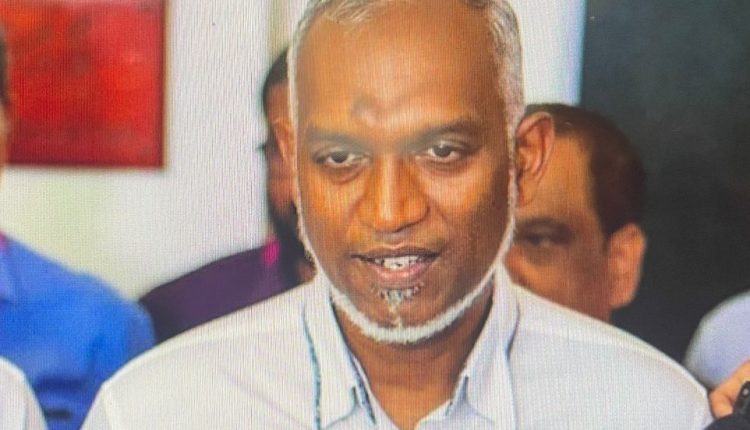New Delhi: The President-elect of Maldives, Mohamed Muizzu has said that his country intends to be “fully independent” and will ask Indian troops stationed in the island nation to leave. Notably, both New Delhi and Beijing vie for influence in the region.
In a heated election campaign, Muizzu had accused incumbent Ibrahim Solih of allowing India unchecked sway over the island nation’s affairs and of surrendering the country’s sovereignty by allowing Indian troops to be stationed there.
“It happens to be Indian foreign military presence here,” Muizzu, the newly elected head of the Indian Ocean archipelago, said in a wide-ranging interview to Bloomberg TV. He added that his reaction would be the same if the troops were from any other country.
Around 70 Indian military personnel maintain New Delhi-sponsored radar stations and surveillance aircrafts. Indian warships help patrol Maldives’ exclusive economic zone.
Muizzu said he has already begun negotiations with the Indian government on removing its military presence, calling those talks “very successful already.”
“We want a bilateral relationship that’s mutually beneficial,” Muizzu said, adding that Indian soldiers won’t be replaced by troops from other countries. Asking India to remove military personnel in no way indicates “that I’m going to allow China or any other country to bring their military troops here,” he said, he told Bloomberg.
Muizzu’s win extends the tug-of-war between China and India for influence over the strategically located Indian Ocean. Successive governments have tilted either toward India or China. Both Asian powerhouses have invested heavily in upgrading Maldives infrastructure and extended loans, as they compete with each other.
“We want assistance, cooperation with all the countries,” Muizzu said, dismissing the notion that the elections were a referendum on closer ties with either China or India.
The 45-year-old engineer turned mayor of Male, the capital city, and one-time housing minister, leads a party that welcomed Chinese loans and oversaw a wide-ranging crackdown on dissent when it was last in power about five years ago. The nation of just over 500,000 people, spread over 187 inhabited islands, is a tourist destination and in the front lines of climate change. The archipelago also sits along busy shipping routes in the Indian Ocean.



Comments are closed.